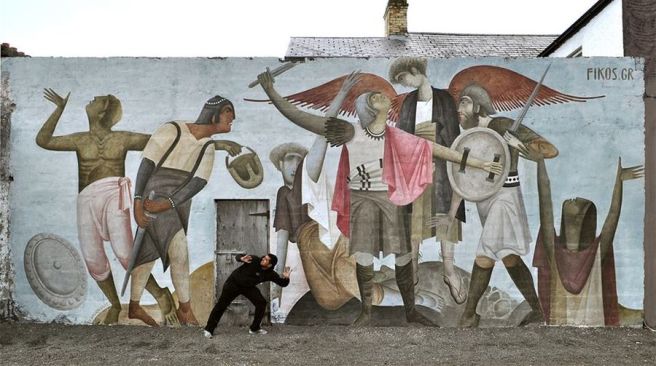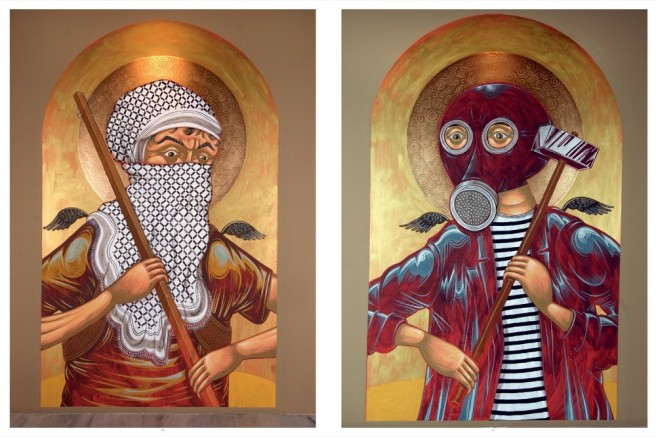 One of the loveliest songs in the Modern Greek repertoire was written for the movie “The Misfit,” released in 1979. The film starred Pavlos Sideropoulos, at the time a Greek Jim Morrison, who, like Morrison, died from heroin addiction in the time-honored fashion of the era’s rock gods. The film was a flop when it was released, but became a cult classic along with the signature song.
One of the loveliest songs in the Modern Greek repertoire was written for the movie “The Misfit,” released in 1979. The film starred Pavlos Sideropoulos, at the time a Greek Jim Morrison, who, like Morrison, died from heroin addiction in the time-honored fashion of the era’s rock gods. The film was a flop when it was released, but became a cult classic along with the signature song.
The song is “Na M’Agapas.” It can be translated as “Please Try to Love Me,”* and is in the chorus followed by “as much as you can.” The singer is beseeching his girlfriend, writing to her at 5 AM out of great need and because, in his eyes, she is all that is left to him in the world. It is all terribly romantic and it is all about him and his desperate need to be loved.
An utterly unromantic version of the theme was one of the anthems of my Northern European youth: Johnny Rotten screeching, “We only wanted to be loved!” over and over again (for seven full minutes) in a falsetto bearing zero resemblance to that of Barry Gibb. Rotten is not addressing the one and only, it is more a cry for societal acceptance, but it resonated with his audience in both senses.
The need to be loved – accepted fully by another human being – drives the young to an extraordinary degree. Part of it is no doubt a function of the drive to procreate. Agreeing to procreate with someone is perhaps the most primal kind of acceptance: your genes are good enough to be the genes of my future children. Michael Douglas knew a thing or two, when he picked up the much younger Zeta-Jones with the line, “I want you to be the mother of my children.” He skipped straight to the primal crux of the matter and won the girl.
Moving through middle age as a female – becoming a crone – brings new revelations on the nature of love. The ability to produce children ends for women long before the sex drive and life itself are extinguished. Freed from the need for that primal acceptance necessary to reproduce, a much different horizon opens up where love is concerned. First and foremost it allows for genuine self-love, often a stumbling block in youth.
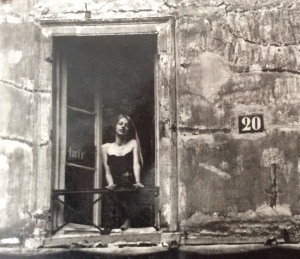 When we search for that perfect set of genes in youth, we are not always so tolerant of how the genes express themselves. It may be a primal acceptance, but only rarely is it a genuine and full acceptance of the other person. We measure the love we feel we are given, and mete out the love we return accordingly. With self-love and resting comfortably in yourself comes the ability to love with no objective in mind other than to love. The wonder comes purely from being able to love, not from obtaining something – sex, marriage, children, submission – from the beloved.
When we search for that perfect set of genes in youth, we are not always so tolerant of how the genes express themselves. It may be a primal acceptance, but only rarely is it a genuine and full acceptance of the other person. We measure the love we feel we are given, and mete out the love we return accordingly. With self-love and resting comfortably in yourself comes the ability to love with no objective in mind other than to love. The wonder comes purely from being able to love, not from obtaining something – sex, marriage, children, submission – from the beloved.
It seems ironic that this ability to love unconditionally, innocently even, develops with age, when it is so craved by the young. With age, you also gain character, confidence, even a degree of wisdom perhaps. The wine has matured nicely, but the casket is scarred, stained and faded. To appreciate the wine you have to look beyond the outward manifestation to what lies within.
Especially for straight women, this poses a conundrum, since men do not experience the same liberation from the need to reproduce and find it difficult to overlook the stained casket (Johnny Rotten from above being a notable exception). More is the pity, since the forgiving love of a hearty crone might just bring the same wonder to the recipient as to the giver. Thanks to being a crone, however, she will be fine either way.
* For any language nerds out there, it is a hortatory subjunctive, the subjunctive being marked in Modern Greek by the particle ‘na’.



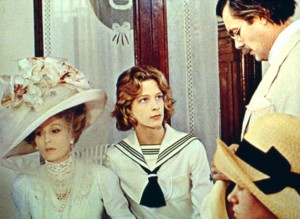

 Eros, art and death. We were children, so the adults assumed we knew nothing of such things. Yet these themes were forced upon us by the behavior of the adults, all the more so because the adults studiously avoided mentioning them. I always had the sense that my preternaturally observant brother intuitively understood that these were the central themes of life. He did not have to know von Aschenbach,
Eros, art and death. We were children, so the adults assumed we knew nothing of such things. Yet these themes were forced upon us by the behavior of the adults, all the more so because the adults studiously avoided mentioning them. I always had the sense that my preternaturally observant brother intuitively understood that these were the central themes of life. He did not have to know von Aschenbach,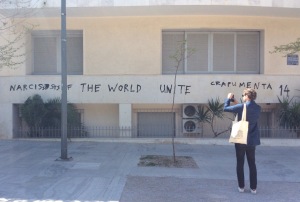 When you parse the deceptively simple title “Learning from Athens,” it does imply that the people learning are non-Athenians. The Athenians themselves are presumably just living their daily reality, grim and glorious in turn. Some of those Athenians, and not just the anarchists, are getting the feeling that the “Mormons” are observing them, much as you might the monkeys at the Zoo. The attention paid to the monkeys is well-intentioned, an attempt to highlight the positive things we can learn from monkeys and their interesting past. But they are still monkeys, however rehabilitated and repackaged they may be.
When you parse the deceptively simple title “Learning from Athens,” it does imply that the people learning are non-Athenians. The Athenians themselves are presumably just living their daily reality, grim and glorious in turn. Some of those Athenians, and not just the anarchists, are getting the feeling that the “Mormons” are observing them, much as you might the monkeys at the Zoo. The attention paid to the monkeys is well-intentioned, an attempt to highlight the positive things we can learn from monkeys and their interesting past. But they are still monkeys, however rehabilitated and repackaged they may be.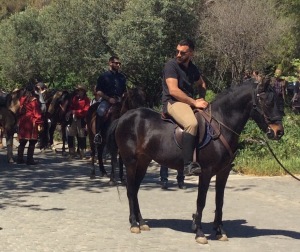

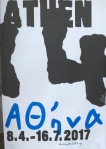 Whether they will learn much about the grim side of contemporary Athenian reality is more doubtful. Being holed up in nice hotels, with maid service to maintain the chic, black wardrobe, and dining out in hip restaurants on expense accounts do not lend themselves to engaging with contemporary Athens in any meaningful way. But they will be sure to admire the graffiti, the food, and the entertaining antics of the monkeys.
Whether they will learn much about the grim side of contemporary Athenian reality is more doubtful. Being holed up in nice hotels, with maid service to maintain the chic, black wardrobe, and dining out in hip restaurants on expense accounts do not lend themselves to engaging with contemporary Athens in any meaningful way. But they will be sure to admire the graffiti, the food, and the entertaining antics of the monkeys. In trying to understand what moves the Trump voter, I have been reading comments by some of the more virulent Trump supporters on the FB pages of friends and browsed tweets, as they showed up in my feed. When exasperation or curiosity gets the better of me, I confess that my fingers may move over the keyboard to engage with some of these people. Recurring themes are distrust of government, conspiracy thinking, and reliance on news sources that are either outright fake or else make Fox News look like a paragon of journalistic integrity. Especially the latter was puzzling to me, given that many of these people are seemingly perfectly literate and intelligent.
In trying to understand what moves the Trump voter, I have been reading comments by some of the more virulent Trump supporters on the FB pages of friends and browsed tweets, as they showed up in my feed. When exasperation or curiosity gets the better of me, I confess that my fingers may move over the keyboard to engage with some of these people. Recurring themes are distrust of government, conspiracy thinking, and reliance on news sources that are either outright fake or else make Fox News look like a paragon of journalistic integrity. Especially the latter was puzzling to me, given that many of these people are seemingly perfectly literate and intelligent. A nice man named Al was kind enough to clue me in. He explained to me that he had no trust in mainstream media, left or right, because these media outlets only peddle the view of the government, which also can’t be trusted. To know what is really going on, you have to resort to Youtube videos and alt-right news sites that tell it like it is. In simple terms, if a source presents views and interpretations of events that go against mainstream arguments, then you can be fairly confident that the source is on to something, according to Al. When I asked Al why he was so distrustful of the government and the media establishment, he cited the Iraq War.
A nice man named Al was kind enough to clue me in. He explained to me that he had no trust in mainstream media, left or right, because these media outlets only peddle the view of the government, which also can’t be trusted. To know what is really going on, you have to resort to Youtube videos and alt-right news sites that tell it like it is. In simple terms, if a source presents views and interpretations of events that go against mainstream arguments, then you can be fairly confident that the source is on to something, according to Al. When I asked Al why he was so distrustful of the government and the media establishment, he cited the Iraq War. In 2003, polls showed that 70% of the US public believed there was a link between Saddam Hussein and 9/11. That is a staggering number, considering that there was no credible evidence to support such a link. Al was one of the people making up that 70%, and at the time, he was in good company. When it became clear that he had been fooled, by a government bent on going to war, aided and abetted by a mainstream media and an opposition unwilling to ask the right questions, he got mad, understandably. Nothing has happened since to restore Al’s faith in the powers that be.
In 2003, polls showed that 70% of the US public believed there was a link between Saddam Hussein and 9/11. That is a staggering number, considering that there was no credible evidence to support such a link. Al was one of the people making up that 70%, and at the time, he was in good company. When it became clear that he had been fooled, by a government bent on going to war, aided and abetted by a mainstream media and an opposition unwilling to ask the right questions, he got mad, understandably. Nothing has happened since to restore Al’s faith in the powers that be. That there was a coordinated campaign to mislead the public, in order to muster support for the Iraq invasion, now seems obvious. There was the notorious Office of Special Plans, established by Wolfowitz and Feith, where previously discredited bits of intelligence were scoured and blown completely out of proportion. There was the Yellowcake story and the subsequent outing of Valerie Plame. The Yellowcake story turned out to be a complete fabrication, the documents all fake, and their supposed vetting more than just a little dodgy. But it worked, beautifully, as that 70% poll number amply illustrates.
That there was a coordinated campaign to mislead the public, in order to muster support for the Iraq invasion, now seems obvious. There was the notorious Office of Special Plans, established by Wolfowitz and Feith, where previously discredited bits of intelligence were scoured and blown completely out of proportion. There was the Yellowcake story and the subsequent outing of Valerie Plame. The Yellowcake story turned out to be a complete fabrication, the documents all fake, and their supposed vetting more than just a little dodgy. But it worked, beautifully, as that 70% poll number amply illustrates. The repercussions, however, of playing fast and loose with government credibility appears to have had a long-lasting negative effect on the legitimacy of that government, and it is not confined to the US. The UK eagerly joined in the Iraq effort, under a Labour government, and the British public has not been too pleased either to find out that they were taken for a ride. Add to this that the demographic that voted Brexit and Trump has a large overlap with the demographic that gave up its sons and brothers to be blown apart by IEDs in Iraq and Afghanistan. They were all gung-ho to go kill the bad terrorists, only to find out that they risked their lives for a pointless war based on lies. They are quite right to be angry. Their distrust has become all-encompassing, affecting views on all manner of issues quite beyond the original question of Iraq.
The repercussions, however, of playing fast and loose with government credibility appears to have had a long-lasting negative effect on the legitimacy of that government, and it is not confined to the US. The UK eagerly joined in the Iraq effort, under a Labour government, and the British public has not been too pleased either to find out that they were taken for a ride. Add to this that the demographic that voted Brexit and Trump has a large overlap with the demographic that gave up its sons and brothers to be blown apart by IEDs in Iraq and Afghanistan. They were all gung-ho to go kill the bad terrorists, only to find out that they risked their lives for a pointless war based on lies. They are quite right to be angry. Their distrust has become all-encompassing, affecting views on all manner of issues quite beyond the original question of Iraq. Since Boris, Trump, and Farage are unlikely to restore faith in government, it seems that we must consider that the only way forward is not politics as we know it, but investment in civil society and political education. Having the Democrats win the presidency in 2020 or reversing Brexit by some improbable maneuver will not solve the problem. It may seem like an age since Cheney, Wolfowitz, Feith, and their buddies gas-lighted the public, with the help and support of the other side of the aisle, but we are still living with the fall-out it seems. What faces us is the rather daunting task of having to rebuild the legitimacy of our democracies.
Since Boris, Trump, and Farage are unlikely to restore faith in government, it seems that we must consider that the only way forward is not politics as we know it, but investment in civil society and political education. Having the Democrats win the presidency in 2020 or reversing Brexit by some improbable maneuver will not solve the problem. It may seem like an age since Cheney, Wolfowitz, Feith, and their buddies gas-lighted the public, with the help and support of the other side of the aisle, but we are still living with the fall-out it seems. What faces us is the rather daunting task of having to rebuild the legitimacy of our democracies.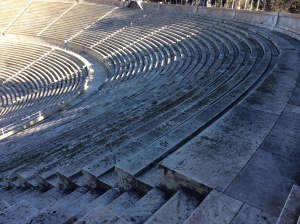 Kallimarmaro is the stadium that was reconstructed and used for the first modern Olympic Games in 1896. It sits on the ruins of an ancient stadium and follows the original design. The entrance for the paying tourists is at the front of the stadium, but at the back, behind the curve, there is an entrance for the general public. You can’t walk into the stadium itself from here, but you can access the well-used jogging track that runs at the top of the stadium, as well as the surrounding hilly park.
Kallimarmaro is the stadium that was reconstructed and used for the first modern Olympic Games in 1896. It sits on the ruins of an ancient stadium and follows the original design. The entrance for the paying tourists is at the front of the stadium, but at the back, behind the curve, there is an entrance for the general public. You can’t walk into the stadium itself from here, but you can access the well-used jogging track that runs at the top of the stadium, as well as the surrounding hilly park.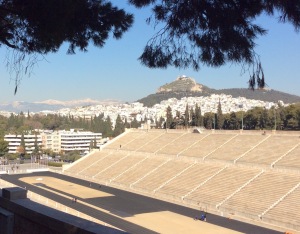 This is the stadium where Spyros Louis victoriously crossed the finish line of the marathon at the 1896 Olympics, and it is still where the last lap of the Athens Marathon is run every year. If you are a marathon runner, you owe yourself an Athens Marathon before your knees give out, just for the thrill of crossing the finish line in Kallimarmaro. Ancient and modern history come together seamlessly in this spot, which is fitting as your gaze takes in a vast expanse of Athens, encompassing modern apartment buildings, neo-classical gems, and ancient monuments in harmonious confusion. The view backed by the snow-capped mountains that have been there through it all.
This is the stadium where Spyros Louis victoriously crossed the finish line of the marathon at the 1896 Olympics, and it is still where the last lap of the Athens Marathon is run every year. If you are a marathon runner, you owe yourself an Athens Marathon before your knees give out, just for the thrill of crossing the finish line in Kallimarmaro. Ancient and modern history come together seamlessly in this spot, which is fitting as your gaze takes in a vast expanse of Athens, encompassing modern apartment buildings, neo-classical gems, and ancient monuments in harmonious confusion. The view backed by the snow-capped mountains that have been there through it all.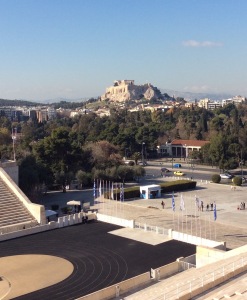 Standing in the midst of this crossroads of history, still pulsating with life, it is almost impossible not to have hope that the city will go on and that life for her inhabitants will improve. The current troubles are, after all, a mere blip on the timeline of Athena’s favorite town. Athenians are tough. On this first day of the new year, they are out jogging, walking their dogs, chatting to neighbors. You want to believe that good things will come of their perseverance.
Standing in the midst of this crossroads of history, still pulsating with life, it is almost impossible not to have hope that the city will go on and that life for her inhabitants will improve. The current troubles are, after all, a mere blip on the timeline of Athena’s favorite town. Athenians are tough. On this first day of the new year, they are out jogging, walking their dogs, chatting to neighbors. You want to believe that good things will come of their perseverance.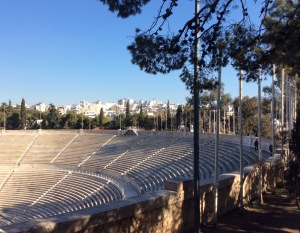 And yet, the mood is subdued. In the past, around the holidays, you would hear wishes of prosperity and progress in the new year. The Greek custom at New Year is to smash a pomegranate on your doorstep, the seeds representing luck and wealth. This year, the most common wish extended is “Υγεία να έχουμε!” – May we have our health! It is said with a resigned air to suggest that this is all we have left to hope for. It is, of course, not a small thing to hope for and without health, the rest quickly becomes meaningless.
And yet, the mood is subdued. In the past, around the holidays, you would hear wishes of prosperity and progress in the new year. The Greek custom at New Year is to smash a pomegranate on your doorstep, the seeds representing luck and wealth. This year, the most common wish extended is “Υγεία να έχουμε!” – May we have our health! It is said with a resigned air to suggest that this is all we have left to hope for. It is, of course, not a small thing to hope for and without health, the rest quickly becomes meaningless.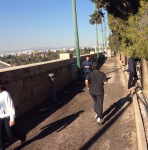 Still, without hope of better things to come, it is hard to see how long people here can persevere in their daily struggles. The sun is glorious, the views spectacular, and the joggers enjoying this historic track are steadfastly working on protecting their health. But it is not enough. Athens needs her patron goddess to kick into gear this year and provide reasons to hope.
Still, without hope of better things to come, it is hard to see how long people here can persevere in their daily struggles. The sun is glorious, the views spectacular, and the joggers enjoying this historic track are steadfastly working on protecting their health. But it is not enough. Athens needs her patron goddess to kick into gear this year and provide reasons to hope. As Palin also said in her comments, “Britain – we’re going rogue and the people are taking back control.” Instinctively she knows that the people who voted for Trump and the people who voted for Brexit have much in common. First and foremost, as her comments suggest, they are united by a feeling that they have no control, no voice – that they have been left out and behind. And they are right.
As Palin also said in her comments, “Britain – we’re going rogue and the people are taking back control.” Instinctively she knows that the people who voted for Trump and the people who voted for Brexit have much in common. First and foremost, as her comments suggest, they are united by a feeling that they have no control, no voice – that they have been left out and behind. And they are right. What we are living through is perhaps the beginning of a new era, but it is definitely the culmination of a slow evolution over decades – an evolution that has finally reached a breaking point. What many people, especially those in power, seem to have willfully ignored is that we have developed a new economy in the West. An economy that is leaving a large swathe of the population in the dust, whether that “dust” is dreary council housing in the UK with a meager dole, being consigned to the encroaching, economic wastelands of the US, anemically fuelled by trade in oxycodone and home-cooked meth, or an entire country – Greece – being put in solitary confinement, economically speaking.
What we are living through is perhaps the beginning of a new era, but it is definitely the culmination of a slow evolution over decades – an evolution that has finally reached a breaking point. What many people, especially those in power, seem to have willfully ignored is that we have developed a new economy in the West. An economy that is leaving a large swathe of the population in the dust, whether that “dust” is dreary council housing in the UK with a meager dole, being consigned to the encroaching, economic wastelands of the US, anemically fuelled by trade in oxycodone and home-cooked meth, or an entire country – Greece – being put in solitary confinement, economically speaking. The new economy is run on monopoly money and backed by ever-rising quarterly returns. If you can produce the quarterlies, you can get financing, and that is all that really matters. It is an economy of leveraging gone wild, as we saw in 2008, when the mortgage market collapsed. The subprime mess was, in simple terms, caused by a neat trick that allowed lenders to leverage real estate to the max and then leverage the same real estate a second time against the future. It blew up, but the principle didn’t die, even if about 30% of the combined principal of the West did.
The new economy is run on monopoly money and backed by ever-rising quarterly returns. If you can produce the quarterlies, you can get financing, and that is all that really matters. It is an economy of leveraging gone wild, as we saw in 2008, when the mortgage market collapsed. The subprime mess was, in simple terms, caused by a neat trick that allowed lenders to leverage real estate to the max and then leverage the same real estate a second time against the future. It blew up, but the principle didn’t die, even if about 30% of the combined principal of the West did. One simple way to improve your quarterlies is to cut costs. So first you cut the bennies, a little. Then you cut them some more. Then you make your employees pay for their bennies, or limit their hours so they don’t even qualify for any benefits (remember Walmart?). You can also cut wages and you can move people off the payroll all together, while retaining their services, either by calling people consultants, which sounds high-class, or by using temps. When you can’t any longer find people to work for your measly wages, you can always move the jobs abroad.
One simple way to improve your quarterlies is to cut costs. So first you cut the bennies, a little. Then you cut them some more. Then you make your employees pay for their bennies, or limit their hours so they don’t even qualify for any benefits (remember Walmart?). You can also cut wages and you can move people off the payroll all together, while retaining their services, either by calling people consultants, which sounds high-class, or by using temps. When you can’t any longer find people to work for your measly wages, you can always move the jobs abroad. Then came Trump and Bernie. Bernie folded, but Trump plugged on, largely taking the GOP by stealth. All those nice, polite country club republicans were convinced that someone like Trump couldn’t possibly win the nomination. By the time they thought again, it was too late, and “that man” was their candidate. Many establishment republicans voted for Hillary, George Bush Sr. reportedly among them. The people for whom the system works rallied around the establishment candidate, parties be damned. They no longer had the luxury of pretending to have political convictions. The problem is that this group is shrinking and the have-nots along with the have-barelies are growing in number and they are mad. Mad enough to trudge down and vote, if they think a candidate will speak up for them. It is a new movement born of the new economy and it has been creeping up on us for decades.
Then came Trump and Bernie. Bernie folded, but Trump plugged on, largely taking the GOP by stealth. All those nice, polite country club republicans were convinced that someone like Trump couldn’t possibly win the nomination. By the time they thought again, it was too late, and “that man” was their candidate. Many establishment republicans voted for Hillary, George Bush Sr. reportedly among them. The people for whom the system works rallied around the establishment candidate, parties be damned. They no longer had the luxury of pretending to have political convictions. The problem is that this group is shrinking and the have-nots along with the have-barelies are growing in number and they are mad. Mad enough to trudge down and vote, if they think a candidate will speak up for them. It is a new movement born of the new economy and it has been creeping up on us for decades. Brexit and the specter of a Trump presidency have drowned out the Greek crisis. Besides, the word ‘crisis’ implies a temporary state of high alert, not an endless slog that has become simply how things are. If a crisis doesn’t end, can it even be called a crisis? As in a war that ends without a proper peace agreement, the new lines in the sand eventually become the status quo. The Syrians still claim the Golan Heights, formally, but they and everyone else know that they will never get it back. The same goes for Northern Cyprus, by now occupied by Turkey for more than forty years. The occupation may be illegal, and Northern Cyprus remains unrecognized as a legal entity by the international community, yet it operates as a state and even the Greeks ceased to refer to the Cyprus situation as a crisis decades ago.
Brexit and the specter of a Trump presidency have drowned out the Greek crisis. Besides, the word ‘crisis’ implies a temporary state of high alert, not an endless slog that has become simply how things are. If a crisis doesn’t end, can it even be called a crisis? As in a war that ends without a proper peace agreement, the new lines in the sand eventually become the status quo. The Syrians still claim the Golan Heights, formally, but they and everyone else know that they will never get it back. The same goes for Northern Cyprus, by now occupied by Turkey for more than forty years. The occupation may be illegal, and Northern Cyprus remains unrecognized as a legal entity by the international community, yet it operates as a state and even the Greeks ceased to refer to the Cyprus situation as a crisis decades ago.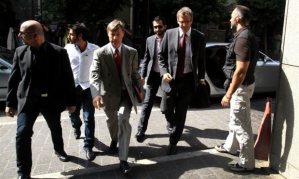
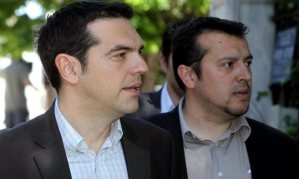
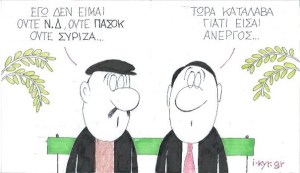
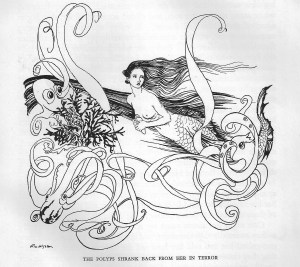 Briefly, the little mermaid falls in love with a handsome young, human prince. In the hope of marrying him, she goes to the sea-witch, asking to have her fishtail transformed into human legs. The witch will oblige, but there is a price. The little mermaid must pay her loveliest attribute, her voice, in return, and every time she takes a step with her human legs, it will feel like she is walking on broken glass. If she succeeds in marrying the prince, she will gain not only her true love, but also a human soul and thereby life eternal. If she fails, she will die and disintegrate into sea-foam the day he marries another.
Briefly, the little mermaid falls in love with a handsome young, human prince. In the hope of marrying him, she goes to the sea-witch, asking to have her fishtail transformed into human legs. The witch will oblige, but there is a price. The little mermaid must pay her loveliest attribute, her voice, in return, and every time she takes a step with her human legs, it will feel like she is walking on broken glass. If she succeeds in marrying the prince, she will gain not only her true love, but also a human soul and thereby life eternal. If she fails, she will die and disintegrate into sea-foam the day he marries another.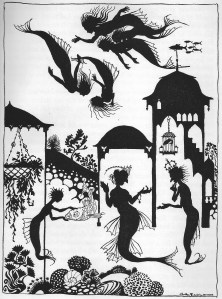 In reality, survivorship for most breast cancer patients involves having relinquished attributes, i.e. breasts, in whole or in part, and taking a pill every day for five, ten or more years that causes chronic foot pain, among other unpleasant side effects. It also involves ongoing vigilance, scans, tests and visits to the oncology department. Many people are under the misapprehension that if you survive five years after a cancer diagnosis, you are in the clear. This is true for certain cancers, like leukemia and ovarian cancer. It is not true for most types of breast cancer. Breast cancer can recur as metastasis (meaning terminal disease) at any time and does in an estimated 25-30% of cases. There have been great advances in breast cancer treatment over recent decades, but those have mainly contributed to extending lifespans. The death rate for the disease remains high and fairly constant.
In reality, survivorship for most breast cancer patients involves having relinquished attributes, i.e. breasts, in whole or in part, and taking a pill every day for five, ten or more years that causes chronic foot pain, among other unpleasant side effects. It also involves ongoing vigilance, scans, tests and visits to the oncology department. Many people are under the misapprehension that if you survive five years after a cancer diagnosis, you are in the clear. This is true for certain cancers, like leukemia and ovarian cancer. It is not true for most types of breast cancer. Breast cancer can recur as metastasis (meaning terminal disease) at any time and does in an estimated 25-30% of cases. There have been great advances in breast cancer treatment over recent decades, but those have mainly contributed to extending lifespans. The death rate for the disease remains high and fairly constant. Plastic surgeons will replace the lost attributes, if the patient is willing to endure much pain and many surgeries. The replacements, however, will have no sensation and thus no sexual or other function. Replacements can be made from the patient’s own tissue, which involves cutting off either the stomach or the upper buttocks and moving the lumps of flesh to the chest. In some cases, the latissimus dorsi muscle is moved from back to front and backed with an implant. The descriptions of this surgery, also known as a “lat-flap,” do mention that it may result in decreased upper body strength and impaired mobility. But hey, at least you will have perky new tits!
Plastic surgeons will replace the lost attributes, if the patient is willing to endure much pain and many surgeries. The replacements, however, will have no sensation and thus no sexual or other function. Replacements can be made from the patient’s own tissue, which involves cutting off either the stomach or the upper buttocks and moving the lumps of flesh to the chest. In some cases, the latissimus dorsi muscle is moved from back to front and backed with an implant. The descriptions of this surgery, also known as a “lat-flap,” do mention that it may result in decreased upper body strength and impaired mobility. But hey, at least you will have perky new tits!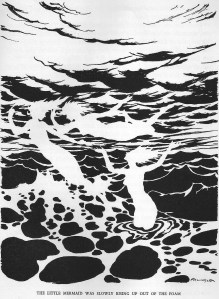 As you may have guessed or already know, the little mermaid dies at the end of the story because her prince marries someone else. However, she is given a last chance at life. The mermaid’s sisters have obtained a special knife from the sea-witch, paying for it with their beautiful hair. If the little mermaid kills the prince with this knife, and bathes her legs in his blood, they will grow back into a fishtail and she may return to the ocean and live out her full lifespan as a mermaid. Out of love, she refrains and is given a classic Andersen reprieve in death. Were she merely a mermaid, she would turn into foam and that would be that. Had she married the prince, she would have a soul and go to heaven. In Andersen’s compromise, she becomes a probationary angel, because she refrained from murder to save herself, and after 300 years of probation, she will get her eternal soul after all. Living with breast cancer is much like being on probation. It certainly beats being turned into sea-foam, but I refuse to participate in the Komen run, because since I am a breast cancer patient, who is thankfully still alive, they would give me a T-shirt proclaiming me a “Survivor.” If they gave me a shirt that said “On Probation”, I might reconsider.
As you may have guessed or already know, the little mermaid dies at the end of the story because her prince marries someone else. However, she is given a last chance at life. The mermaid’s sisters have obtained a special knife from the sea-witch, paying for it with their beautiful hair. If the little mermaid kills the prince with this knife, and bathes her legs in his blood, they will grow back into a fishtail and she may return to the ocean and live out her full lifespan as a mermaid. Out of love, she refrains and is given a classic Andersen reprieve in death. Were she merely a mermaid, she would turn into foam and that would be that. Had she married the prince, she would have a soul and go to heaven. In Andersen’s compromise, she becomes a probationary angel, because she refrained from murder to save herself, and after 300 years of probation, she will get her eternal soul after all. Living with breast cancer is much like being on probation. It certainly beats being turned into sea-foam, but I refuse to participate in the Komen run, because since I am a breast cancer patient, who is thankfully still alive, they would give me a T-shirt proclaiming me a “Survivor.” If they gave me a shirt that said “On Probation”, I might reconsider.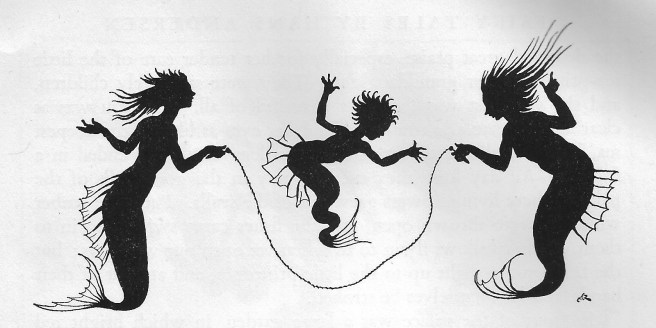
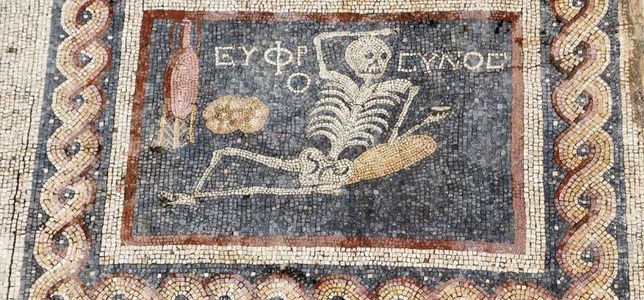
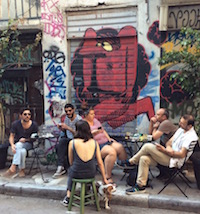
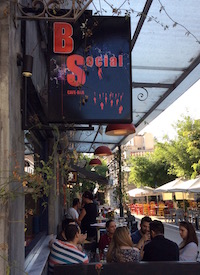 ey serve cocktails, they serve wine and they serve snacks, some quite delightful. For a modest sum, you can have a good evening out with friends, as long as you all ate some lentils at home beforehand or picked up a gyro sandwich somewhere along the way. If you are a lawyer who still has clients, meeting for coffee is cheaper than taking people for lunch like you might have done pre-crisis. So the café boom is partly because café visits are a more economical way of socializing than the alternatives. Visiting foreigners are often aghast at the droves of Greeks seemingly idling away at café tables, but this is the heartbeat of the nation, and tomorrow may never come.
ey serve cocktails, they serve wine and they serve snacks, some quite delightful. For a modest sum, you can have a good evening out with friends, as long as you all ate some lentils at home beforehand or picked up a gyro sandwich somewhere along the way. If you are a lawyer who still has clients, meeting for coffee is cheaper than taking people for lunch like you might have done pre-crisis. So the café boom is partly because café visits are a more economical way of socializing than the alternatives. Visiting foreigners are often aghast at the droves of Greeks seemingly idling away at café tables, but this is the heartbeat of the nation, and tomorrow may never come.







